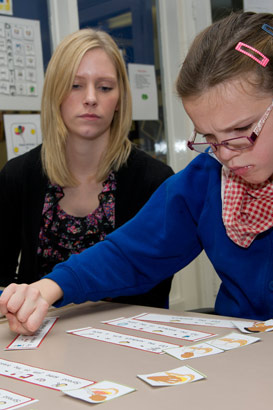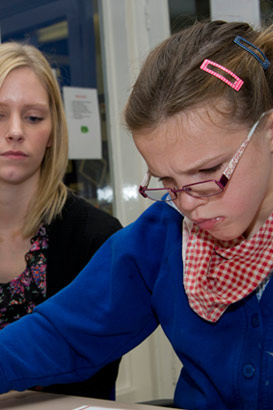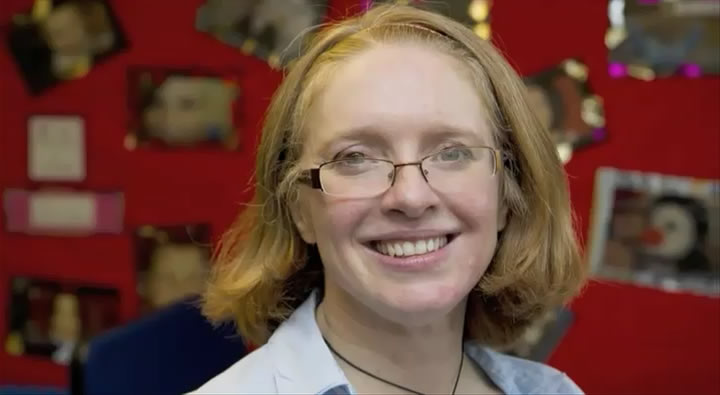
Inquiry is a process of finding out, it is what we do to resolve a question or a problem. We may believe an answer is obvious,
but often research throws up some surprising results.
Some approaches that people are convinced do work, prove not to work when researched; other approaches that people think will
not work, prove very effective.
So the purpose of research may often be to test whether an approach 'stands up' to examination.
Research may be seen as a more formalised and structured version of activities we already carry out in our practice - for
example, collecting data and reporting on pupil attendance.
It was very, very interesting - good to try something new and exciting.
[The project] has given us the skills and the confidence to do research rather than struggling to tackle the problem.
It has given me the freedom to find the right way forward to help with the children that were the most challenging.
...we must always be seeking yet more innovative approaches and keep up to date with research to improve teaching and learning opportunities... it has led to some excellent new ideas/resources...

- Empowerment.
- Evidence to change class practice.
- Evidence to support or challenge teaching approaches.
- Evidence to affect school policy.
- Continuing professional development.
- Professional interest.
What role does inquiry/research play in your work now? What role could or should it play?
Research has often been seen as something done by specialists. However, this is changing. Practitioners increasingly have
to justify their approaches and show that they use 'evidence-based practice'.
Listen to this audio clip of Jen Angelini (Head of Complex Needs, Brookfield School) talking about school-focused research.
Talk to colleagues about the impact research has within your school. Find out what research been undertaken by other staff.
Listen to this teacher talking about the impact that research has had on one of her pupils.
of inquiry

Class-based research is generated by the questions educators ask every day in their classrooms and staffrooms:
- How do you manage when...?
- What do you think about...?
- Have you ever seen...?
- Have you got any ideas about...?
- Do you know if this is any good...?
Evidence collected every day in the classroom can, with attention to focus, accuracy, consistency, detail and interpretation, support classroom research.

One or more of these publications may support you as you work through Level B.
Bell, J. (2010) Doing Your Research Project: A Guide for First-Time Researchers in Education, Health and Social Science.
Maidenhead: Open University Press.
Carpenter, B. and Egerton, J. (eds) (2007) New Horizons in Special Education: Evidence-based practice in action. Clent:
Sunfield Publications.
Cryer, P. (2006) The Research Student's Guide to Success (3rd edn). Buckingham: Open University Press.
Denscombe, M. (2002) Ground Rules for Good Research. Maidenhead: Open University Press.

Denscombe, M. (2010) The Good Research Guide for Small Scale Social Research Projects (4th edn). Maidenhead: Open
University Press.
Jones, P., Whitehurst, T. and Egerton, J. (eds) (2012) Creating Meaningful Inquiry in Inclusive Classrooms: Practitioners'
stories of research. London: Routledge.
Roberts-Holmes, G. (2011) Doing Your Early Years Action Research Project: A step by step guide (2nd edn). London: Sage.
Rose, R. and Grosvenor, I. (2001) Doing Research in Special Education: Ideas into Practice. London: David Fulton.
Porter, J. and Lacey, P. (2005) Researching Learning Difficulties: A guide for practitioners. London: Paul Chapman.

